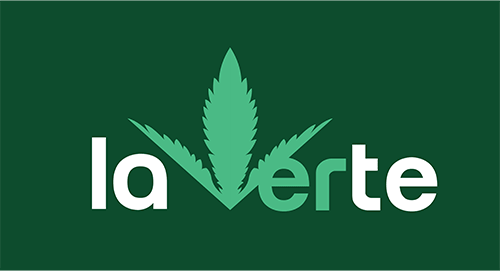Blog la Verte Shop
CBD in Marseille: A hospital is experimenting with the product, authorized since the end of March 2021.
Suite à l’accord des autorités sanitaires, certains établissements mènent une expérimentation du cannabis thérapeutique, comme à l’hôpital de la Timole à Marseille.
À Marseille, l’hôpital de la Timone fait partie des sites pilotes en France. Il accueille quelques-uns des 3.000 patients devant participer à cette expérimentation dans toute la France et ce pendant deux ans. L’expérimentation est menée dans « 215 centres sur le territoire », selon l’Agence nationale de sécurité du médicament et des produits de santé (ANSM), qui a donné son feu vert.
Le ministre de la Santé Olivier Véran s’est rendu à cet effet au CHU de Clermont-Ferrand, fin mars, pour « la première prescription » de ce médicament.
« C’est un grand pas qui est franchi », s’enthousiasme le professeur Olivier Blin, chef du service pharmacologie de l’hôpital de la Timone de Marseille, un établissement faisant partie des sites chargés de surveiller les patients intéressés par l’expérimentation.
« Cela répond aux attentes des patients et des associations de CBD. Nous allons rester en vigilance sur les effets, les surveiller de près »He has been studying the medicinal characteristics of cannabis for several years. He is in fact carrying out a project to experiment with cannabidiol (CBD) on Parkinson's patients.
Il précise qu’il ne s’agit pas de cannabis fumé. « On fait bien la différence entre cannabis récréatif et médical ». Pour lui, le point clé de cette expérimentation réside dans le fait d’identifier les fournisseurs habilités à fournir des produits validés sur le plan de la qualité.
« L’un des problèmes principaux, dans l’absence de cadre c’est le fait que certains patients sont allés chercher dans la rue des produits identifiés comme étant du cannabis, mais qui n’en sont pas. Ils contiennent des polluants ou des produits de synthèse qui peuvent être mortels »says Professor Blin.
« Grâce au travail du réseau pharmacovigilance et addictovigilance qui encadrent cette expérimentation, nous saurons s’il existe des risques potentiels physiques cardiaques, mais aussi psychiques et comportementaux à utiliser cette molécule et quels bénéfices précis les patients en retirent », conclut t’il.
Il est possible de retrouver une carte des 170 hôpitaux impliqués dans l’expérimentation sur le site de l’ANSM.
Etudier l’efficacité et la sécurité du cannabis
The primary objective of this study will be to assess « la faisabilité du circuit de mise à disposition » from oil or dried flowers that will be prescribed to patients, explains the Ministry of Health, highlighting a procedure « très sécurisée ».
Quant au second ? Il s’agira de « recueillir les premières données françaises sur l’efficacité et la sécurité du cannabis dans un cadre médical », aux regards des résultats obtenus par ses molécules actives et notamment le CBD, relaxant, anti-inflammatoire et anticonvulsif, entre autres.
Who is concerned?
La première consultation doit se faire obligatoirement dans un de ces centres de référence avec des patients déjà suivis dans ces services hospitaliers spécialisés ou bien adressés par leur médecin traitant. La décision d’inclure ou non le patient revient aux médecins des centres de références.
Les patients sont éligibles seulement s’ils souffrent de maladies graves: certaines formes d’épilepsies, de douleurs de type neuropathiques, d’effets secondaires de la chimiothérapie, de situations de soins palliatifs ou certaines douleurs de la sclérose en plaques.
Mais seulement « en cas de soulagement insuffisant ou d’une mauvaise tolérance » avec les traitements déjà existants, selon l’ANSM. Des enfants pourront être inclus, en particulier pour des formes d’épilepsie réfractaires aux traitements ou en cancérologie.
How is cannabis administered?
Ces médicaments, sous forme d’huile par voie orale (en flacons de solutions buvables) ou de fleurs séchées par inhalation à l’aide d’un vaporisateur, seront disponibles à différents dosages des substances actives – tétrahydrocannabinol (THC) et de cannabidiol (CBD).
La prescription, au départ dans un service hospitalier, se fait sur ordonnance sécurisée (pour 28 jours maximum), comme pour tout stupéfiant parmi lesquels le cannabis, illégal en France, est rangé. Ce qui n’est pas le cas du CBD, qui est lui un produit non stupéfiant, et de ce fait légal en France.
Un médecin généraliste, formé et volontaire, peut prendre le relais. Le consentement des patients à cet essai, qui permet de recueillir les premières données françaises sur l’efficacité et la sécurité du cannabis médical, entraîne leur inscription dans un registre de suivi.
Le cannabis à fumer est donc exclu du protocole. L’épidémie de Covid-19 a contribué à retarder le lancement de cette expérimentation, autorisée par un décret d’octobre 2020 précisant qu’elle devait commencer avant fin mars 2021.
In the European Union, 17 countries have already authorized medical cannabis treatments.

